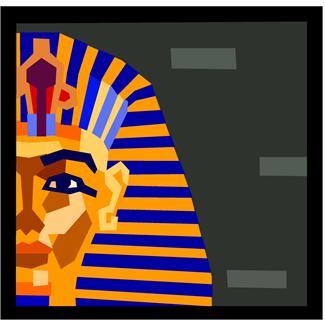Thinking back on more than six-decades-worth of Passover sederim I have attended or led, quite a few stand out in my memory: the warm family sederim of my childhood in Baltimore, led by my uncle, Rabbi Morris Lieberman, and the old Union Haggadah that we used; congregational sederim in the temple in which I grew up when the consolation prize for the hundreds of kids who did not find the afikomen, was tickets to a Baltimore Orioles baseball game....because the temple president at that time was the owner of the team; the intimate Skype seder we held with our son when he was in London for a semester; the FJC seder when we invited a local Tibetan family to join us to help raise our awareness of the plight of the Tibetan people; the wonderful community-wide sederim we’ve held to share with the broader community the meaning and the experience of a Passover seder.
In every instance, everyone present sat down at the festive table to engage in an act of collective remembrance that, ideally, inspired us to take action when we finished our festive meal and returned to our engagement with the world.
Truth be told, if we take part in a seder merely to enjoy community, engage in festive ritual and consume a good meal, we’ve missed a vital opportunity. Passover should inspire us to look at the world around us and ask these questions: “Where in our world do pharaohs still exist in need of toppling? Where, and in what forms, does slavery still exist and what are we prepared to do about it?”
Sadly, the answers to those questions are not hard to find: any news source will provide the answer. There are pharaohs galore in our world, occupying seats of power in our own country, in Eastern Europe, in Russian, in the Middle East, in Asia and elsewhere.
Pharaohs are not only people; systemic racism, antisemitism, misogyny, homophobia and transphobia, Islamophobia....they are all expressions of oppression in need of confrontation.
Slavery? It’s closer than we think...... the human trafficking of sex-workers that recently ensnared a famous NFL team owner; the recent conviction of a Cape Cod couple for running a house of prostitution and sex-trafficking.
There are personal forms of slavery as well. Some of us are enslaved to conditioned ways of thinking and reacting to our world that keep us from living the fulfilling lives we desire. Some of us are enslaved to addictions of various kinds and for various reasons.
A line in our siddur, our prayer-book asserts: “The one who rises from prayer a better person, that one’s prayers have been answered.” Building on that statement, allow me to suggest the following: “The person who rises from a Passover seder inspired to confront the pharaohs of this world and the slavery that impacts us all, that one’s seder has been a fulfilling one.”
May your experience of Passover be a fulfilling one and may it inspire you to engage in the hard and necessary work of toppling pharaohs of all kinds!



